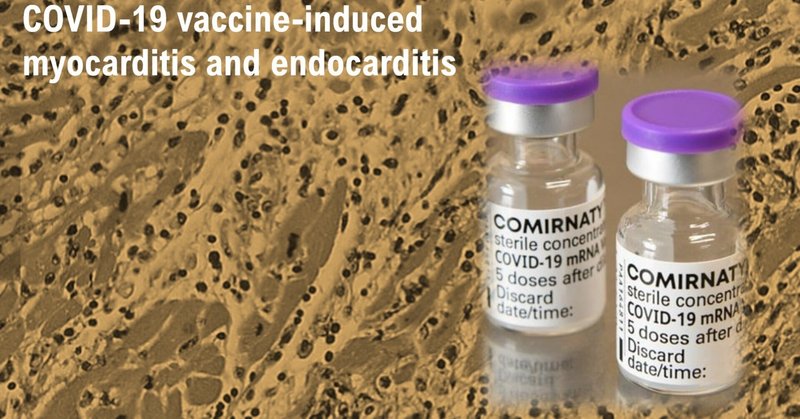
Ethnic differences in incidence of myocarditis and endocarditis
In December 2022, results reported by the Japanese Ministry of Health, Labor and Welfare revealed that very rare cases of myocarditis and pericarditis occurred after vaccination with the mRNA-based COVID-19 vaccine from Pfizer/BioNTech or Moderna. In particular, Japanese young and young adult men in their teens and twenties tend to develop myocarditis and endocarditis within about our days after the second dose vaccination of the mRNA-based COVID-19 vaccine.
In comparison with the US results reported by Oster et al., it has been revealed that the incidence of myocarditis/endocarditis in Japanese vaccinated with mRNA-1273 vaccine (Moderna) is approximately four times higher than with BNT162b2 (Pfizer/BioNTech). From the results of clinical studies conducted in Japan so far, it has been reported that the incidence of adverse events (including anaphylactic shock) observed after vaccination with mRNA-based COVID-19 vaccine is about 10 times higher than in Europe and the United States. Furthermore, the incidence of adverse events (including anaphylactic shock) observed after vaccination with mRNA-based COVID-19 vaccine has been shown to be significantly higher in women than in Japanese men. In other words, the results obtained from clinical studies conducted in Japan are partially different from the results obtained from clinical studies conducted in Europe and/or the United States.
The onset of myocarditis and endocarditis is also observed 1 to 2 days after vaccination with vaccines other than the mRNA-based COVID-19 vaccine (i.e., polio vaccine, BCG vaccine, HPV vaccine). Therefore, the development of myocarditis and endocarditis after vaccination is considered an acute allergic response. The difference in the incidence of adverse events (including myocarditis and endocarditis) after vaccination with mRNA-based COVID-19 vaccine between Western countries and Japan is considered to be a characteristic of immune responses in races. On the other hand, the reason for the observed sex difference in the incidence of adverse events after mRNA-based COVID-19 vaccination remains unclear. Clinical studies with large cohorts involving large numbers of people are required to clarify the detailed mechanisms of the development of allergic responses after vaccination.
Doctor specializing in cancer care・Doctor specializing in emerging infectious diseases
Published in JAMA on Feb. 25, 2023 by Kyoto@takumah
この記事が気に入ったらサポートをしてみませんか?
